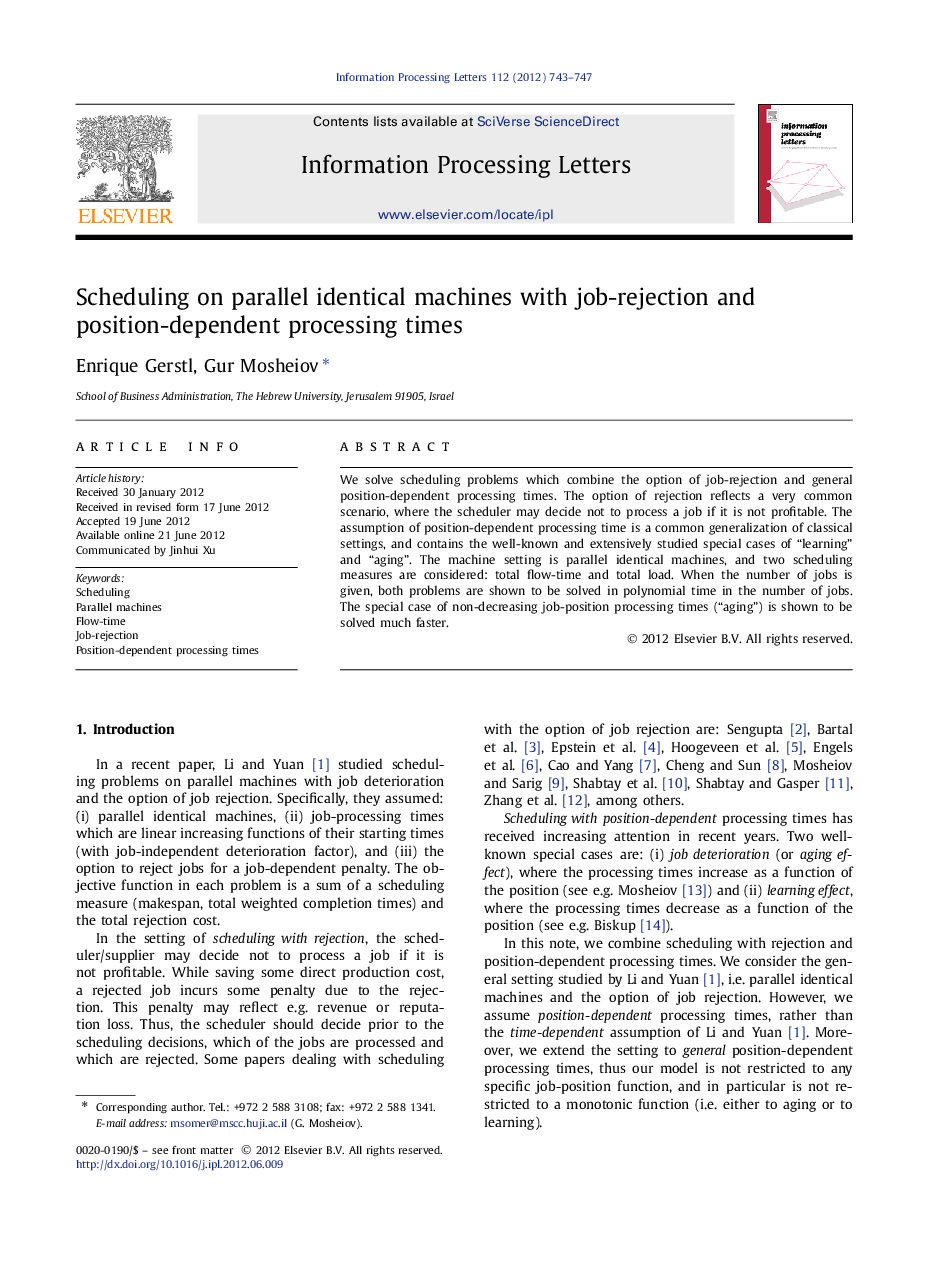| Article ID | Journal | Published Year | Pages | File Type |
|---|---|---|---|---|
| 429004 | Information Processing Letters | 2012 | 5 Pages |
We solve scheduling problems which combine the option of job-rejection and general position-dependent processing times. The option of rejection reflects a very common scenario, where the scheduler may decide not to process a job if it is not profitable. The assumption of position-dependent processing time is a common generalization of classical settings, and contains the well-known and extensively studied special cases of “learning” and “aging”. The machine setting is parallel identical machines, and two scheduling measures are considered: total flow-time and total load. When the number of jobs is given, both problems are shown to be solved in polynomial time in the number of jobs. The special case of non-decreasing job-position processing times (“aging”) is shown to be solved much faster.
► We focus on scheduling problems with job-rejection and general position-dependent processing times. ► The machine setting is parallel identical machines. ► The objective functions: total flow-time and total load. ► We introduce polynomial-time solutions for both problems. ► The case of non-decreasing job-position processing times (aging) is shown to be solved more efficiently.
